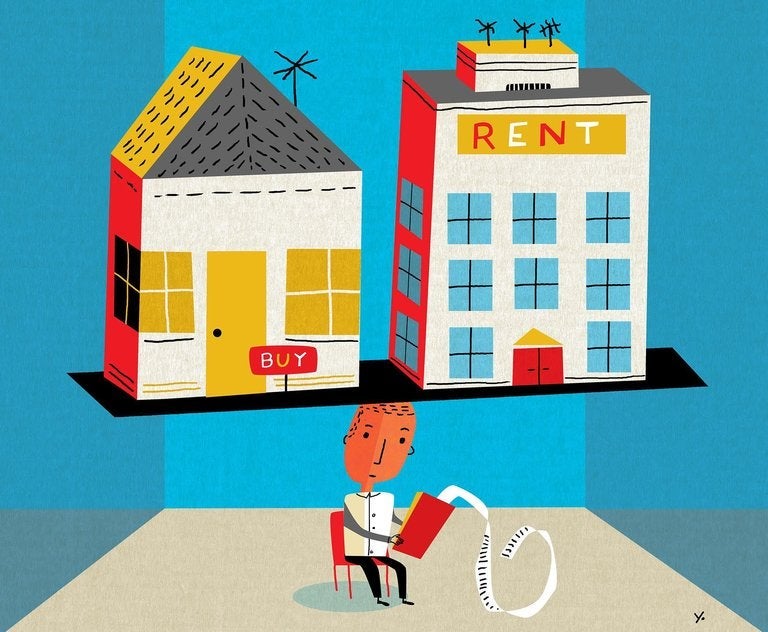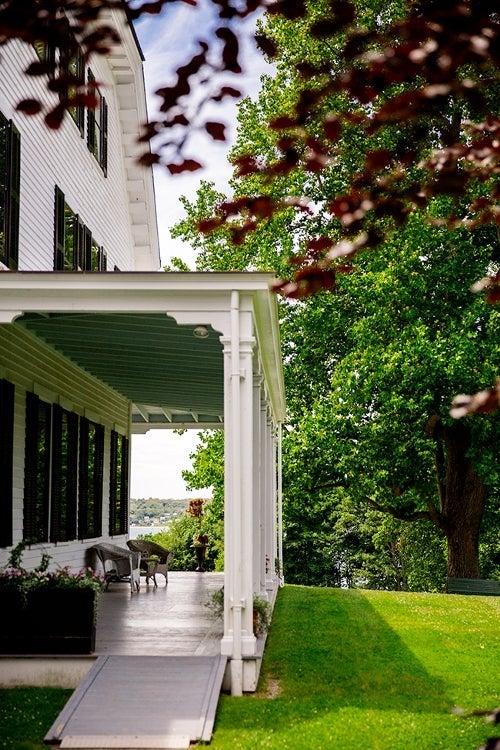Should I Buy Or Should I Sell In Metro Vancouver Version 2016.0
(June 09, 2016
)
Should I Buy Or Should I Sell In Metro Vancouver Version 2016.0
 If you review our blog and social media you'll find numerous articles and analysis speaking to every imaginable subject from unethical realtors, interest rates, shadow flipping, our bi polar real estate market and yes, whether you and yours should buy or sell your home today or tomorrow.
If you review our blog and social media you'll find numerous articles and analysis speaking to every imaginable subject from unethical realtors, interest rates, shadow flipping, our bi polar real estate market and yes, whether you and yours should buy or sell your home today or tomorrow.
 If you review our blog and social media you'll find numerous articles and analysis speaking to every imaginable subject from unethical realtors, interest rates, shadow flipping, our bi polar real estate market and yes, whether you and yours should buy or sell your home today or tomorrow.
If you review our blog and social media you'll find numerous articles and analysis speaking to every imaginable subject from unethical realtors, interest rates, shadow flipping, our bi polar real estate market and yes, whether you and yours should buy or sell your home today or tomorrow. For those of you who have only until today discovered our urban and suburban real estate team here is our newest take on the subject much of Vancouver, the Fraser Valley and BC is obessed with or perhaps only the media is!
Fortunately, there are many tools to help you work through the math, including our own BCHH's excellent calculator. But as someone who worked on that calculator and who has spent a lot of time examining the economics of homeownership, we have a confession: There are some dimensions of rent versus buy that are really important but difficult to account for in dollar terms.
These dimensions have inherent but hard-to-calculate value. They have to do with how owning a home in greater Vancouver lets you stop worrying about rent increases, offshore investors, shadow flippers, media meltdowns, social redistribution of wealth mayors and forces you to save money and gives you certain tax benefits, and on the flip side, how renting means you don’t have to worry about the unpredictable costs of maintaining a home. Anyone trying to make a housing decision should at least think about them a bit before taking, or not taking, the plunge. Did we mention our continued record low interest rates?
Protection Against Rising Rents
Suppose you live in a city that you find desirable and could envision living in for a very long time. Suppose you work in a field in which you can’t plausibly expect your income to rise significantly in the decades ahead.
That makes a case for buying over renting.
No one knows the future of rents and home prices, either nationally or for any particular region. But one thing we do know is that sometimes rents and prices will skyrocket in a particular place. It has happened in New York and San Francisco since the 1990s; the same happened in Los Angeles from the 1960s to the 1980s, and a century ago one could say the same of Chicago and Detroit.
Is It Better to Rent or Buy?
The choice between buying a home and renting one is among the biggest financial decisions that many adults make.
Buying a home is a way of locking in an affordable place to live, essentially an insurance policy against escalating rents. If you rent, you are forever at risk of your region’s becoming newly popular, attracting an influx of people and high-paying jobs that drives up your cost of living beyond what your income can support.
Of course, your region may not be one of those new boom areas, in which case this insurance policy would prove unnecessary; you could even end up in a place with falling rents and home values, like Detroit in the last couple of decades. But that’s the nature of insurance: You may pay for it but turn out not to need it.
 Oh, and some places have rent control laws that might protect a long-term renter. But keep in mind, those laws can always be changed — and they can create inflexibility, making it impossible to move to a more suitable home in the same location without seeing a steep rise in rent.
Oh, and some places have rent control laws that might protect a long-term renter. But keep in mind, those laws can always be changed — and they can create inflexibility, making it impossible to move to a more suitable home in the same location without seeing a steep rise in rent.
Two factors that might help shape your decision and no neither have anything to do with a walk score or the nearest Starbucks folks:
How disruptive would it be for you to move somewhere else? The more disruptive, the more you should value this insurance against higher rents.
How freely does your city allow new home building? Rents are less likely to increase sharply if the housing supply can rise to meet new demand.
Forced Savings
Sometimes people say that renting is “just throwing money away,” which is a little misleading. You could just as easily say that when you buy a home, the mortgage interest and property taxes you pay are throwing money away.
But that line of thinking does get one dimension of home buying right: When you buy a home with a standard mortgage, you gradually pay off the balance — slowly at first, faster as time goes on. Someone who takes out a $500,000, 30-year fixed-rate mortgage at 4 percent has paid down about $8,000 of debt after one year, and $47,000 after five years.
In terms of a personal balance sheet, less debt is equivalent to more savings — assuming the value of the home is stable or rising. People who buy houses while in their early 30s with a 30-year mortgage and stay in it will own a valuable asset free and clear when they hit retirement age. They could either live rent- or mortgage-payment free during retirement, or sell the house, move somewhere cheaper and have a nice pile of cash savings.
Theoretically, one could construct the same strategy while renting, putting money away into a savings or investment account while paying a landlord for a place to live. The beauty of owning is that it happens automatically, by virtue of paying your mortgage. That means less temptation to spend the money instead of saving in a given month; you can get access to it through a home-equity loan, but that requires making the active effort of going to a bank.
So if, psychologically, you find it hard to save and are always tempted to take a vacation rather than plow money into a brokerage account, buying a house with borrowed money is a way to trick yourself into doing so and help ensure you have a meaningful net worth when retirement rolls around.
Owner’s Hidden Tax Benefits
Suppose you had plenty of cash and were trying to decide whether to buy a home outright, or invest most of the money in stocks and bonds and use some of it to pay rent on a home.
At first glance, renting might make sense. The stock market, for example, has a higher return than real estate historically, so in theory that portfolio could pay the rent and keep growing rapidly.
But a quirk of the tax code tends to obliterate that advantage. When you invest money in financial assets, you have to pay taxes on the returns they offer — the interest paid by corporate bonds, for example, or the dividends from stocks, or the capital gains when you sell either for a profit.
When you buy a home for your own use, the return it pays you — namely, giving you a place to live, not interest or dividend payments — is tax free. This is what economists call “imputed rent,” and it is one of the subtle advantages to buying that is hard to account for in standard buy versus rent analysis.
Volatility of Maintenance Costs
These have all been quirks of homeownership that tilt the economics in favor of buying. But here’s an important one that points in the other direction.
 Both renters and homeowners pay costs for maintenance on their properties; they just do so in different ways with very different implications.
Both renters and homeowners pay costs for maintenance on their properties; they just do so in different ways with very different implications.
If you rent and the dishwasher breaks, your landlord is on the hook to repair or replace it. You may ultimately pay the bill in the sense that expected maintenance costs are built into the rent you pay, but you have no risk of that number varying depending on luck.
Homeowners, on the other hand, face not a set monthly payment covering the costs of repairs and maintenance, but a great deal of volatility.
An urgent $2,000 air-conditioner repair bill, or even a $15,000 roof repair, might arise at any time. Other things, like replacing a shabby carpet or applying a fresh coat of paint, allow the homeowner more control over when the transaction happens, but still, it’s a lumpy pattern of expenditures.
Most rent versus buy calculators ask users to put in an estimate of monthly maintenance costs for the home they would purchase. But the issue is not the expected average of those costs but the possibility of their lumpiness and unpredictability. That can be especially problematic for a person who empties savings to buy a home only to need to pay for an expensive repair a few months later.
None of these factors alone should be decisive, and the basics that you plug into online calculators — like the monthly mortgage payment, rent on a comparable place and closing costs — are more important. But when it’s a close call, weighing these factors carefully — and how much they apply in your particular case — can help you make a smarter housing decision.
Whether to buy or rent a home is among the biggest financial decisions most of us make. It is basically a complex math problem in which the reward for getting it right can be tens or hundreds of thousands of dollars — and the punishment for getting it wrong similarly enormous. Our real estate team at The BC Home Hunter Group NEVER attempt to rush you into any decision. On the contrary we gently inform, advise, guide, negotiate and ultimately protect you from any of the numerous pitfalls you might otherwise make when buying or selling real estate.
Fortunately, there are many tools to help you work through the math, including our own BCHH's excellent calculator. But as someone who worked on that calculator and who has spent a lot of time examining the economics of homeownership, we have a confession: There are some dimensions of rent versus buy that are really important but difficult to account for in dollar terms.
These dimensions have inherent but hard-to-calculate value. They have to do with how owning a home in greater Vancouver lets you stop worrying about rent increases, offshore investors, shadow flippers, media meltdowns, social redistribution of wealth mayors and forces you to save money and gives you certain tax benefits, and on the flip side, how renting means you don’t have to worry about the unpredictable costs of maintaining a home. Anyone trying to make a housing decision should at least think about them a bit before taking, or not taking, the plunge. Did we mention our continued record low interest rates?

Protection Against Rising Rents
Suppose you live in a city that you find desirable and could envision living in for a very long time. Suppose you work in a field in which you can’t plausibly expect your income to rise significantly in the decades ahead.
That makes a case for buying over renting.
No one knows the future of rents and home prices, either nationally or for any particular region. But one thing we do know is that sometimes rents and prices will skyrocket in a particular place. It has happened in New York and San Francisco since the 1990s; the same happened in Los Angeles from the 1960s to the 1980s, and a century ago one could say the same of Chicago and Detroit.
Is It Better to Rent or Buy?
The choice between buying a home and renting one is among the biggest financial decisions that many adults make.
Buying a home is a way of locking in an affordable place to live, essentially an insurance policy against escalating rents. If you rent, you are forever at risk of your region’s becoming newly popular, attracting an influx of people and high-paying jobs that drives up your cost of living beyond what your income can support.
Of course, your region may not be one of those new boom areas, in which case this insurance policy would prove unnecessary; you could even end up in a place with falling rents and home values, like Detroit in the last couple of decades. But that’s the nature of insurance: You may pay for it but turn out not to need it.
 Oh, and some places have rent control laws that might protect a long-term renter. But keep in mind, those laws can always be changed — and they can create inflexibility, making it impossible to move to a more suitable home in the same location without seeing a steep rise in rent.
Oh, and some places have rent control laws that might protect a long-term renter. But keep in mind, those laws can always be changed — and they can create inflexibility, making it impossible to move to a more suitable home in the same location without seeing a steep rise in rent.Two factors that might help shape your decision and no neither have anything to do with a walk score or the nearest Starbucks folks:
How disruptive would it be for you to move somewhere else? The more disruptive, the more you should value this insurance against higher rents.
How freely does your city allow new home building? Rents are less likely to increase sharply if the housing supply can rise to meet new demand.
Forced Savings
Sometimes people say that renting is “just throwing money away,” which is a little misleading. You could just as easily say that when you buy a home, the mortgage interest and property taxes you pay are throwing money away.
But that line of thinking does get one dimension of home buying right: When you buy a home with a standard mortgage, you gradually pay off the balance — slowly at first, faster as time goes on. Someone who takes out a $500,000, 30-year fixed-rate mortgage at 4 percent has paid down about $8,000 of debt after one year, and $47,000 after five years.
In terms of a personal balance sheet, less debt is equivalent to more savings — assuming the value of the home is stable or rising. People who buy houses while in their early 30s with a 30-year mortgage and stay in it will own a valuable asset free and clear when they hit retirement age. They could either live rent- or mortgage-payment free during retirement, or sell the house, move somewhere cheaper and have a nice pile of cash savings.

Theoretically, one could construct the same strategy while renting, putting money away into a savings or investment account while paying a landlord for a place to live. The beauty of owning is that it happens automatically, by virtue of paying your mortgage. That means less temptation to spend the money instead of saving in a given month; you can get access to it through a home-equity loan, but that requires making the active effort of going to a bank.
So if, psychologically, you find it hard to save and are always tempted to take a vacation rather than plow money into a brokerage account, buying a house with borrowed money is a way to trick yourself into doing so and help ensure you have a meaningful net worth when retirement rolls around.
Owner’s Hidden Tax Benefits
Suppose you had plenty of cash and were trying to decide whether to buy a home outright, or invest most of the money in stocks and bonds and use some of it to pay rent on a home.
At first glance, renting might make sense. The stock market, for example, has a higher return than real estate historically, so in theory that portfolio could pay the rent and keep growing rapidly.
But a quirk of the tax code tends to obliterate that advantage. When you invest money in financial assets, you have to pay taxes on the returns they offer — the interest paid by corporate bonds, for example, or the dividends from stocks, or the capital gains when you sell either for a profit.
When you buy a home for your own use, the return it pays you — namely, giving you a place to live, not interest or dividend payments — is tax free. This is what economists call “imputed rent,” and it is one of the subtle advantages to buying that is hard to account for in standard buy versus rent analysis.
Volatility of Maintenance Costs
These have all been quirks of homeownership that tilt the economics in favor of buying. But here’s an important one that points in the other direction.
 Both renters and homeowners pay costs for maintenance on their properties; they just do so in different ways with very different implications.
Both renters and homeowners pay costs for maintenance on their properties; they just do so in different ways with very different implications.If you rent and the dishwasher breaks, your landlord is on the hook to repair or replace it. You may ultimately pay the bill in the sense that expected maintenance costs are built into the rent you pay, but you have no risk of that number varying depending on luck.
Homeowners, on the other hand, face not a set monthly payment covering the costs of repairs and maintenance, but a great deal of volatility.
An urgent $2,000 air-conditioner repair bill, or even a $15,000 roof repair, might arise at any time. Other things, like replacing a shabby carpet or applying a fresh coat of paint, allow the homeowner more control over when the transaction happens, but still, it’s a lumpy pattern of expenditures.
Most rent versus buy calculators ask users to put in an estimate of monthly maintenance costs for the home they would purchase. But the issue is not the expected average of those costs but the possibility of their lumpiness and unpredictability. That can be especially problematic for a person who empties savings to buy a home only to need to pay for an expensive repair a few months later.
None of these factors alone should be decisive, and the basics that you plug into online calculators — like the monthly mortgage payment, rent on a comparable place and closing costs — are more important. But when it’s a close call, weighing these factors carefully — and how much they apply in your particular case — can help you make a smarter housing decision.
Feel any better? Worse? If you or anyone you know are considering the purchase or sale of your home  anywhere in metro Vancouver, the Fraser Valley or throughout our beautiful BC don't hesitate to call our urban and suburban real estate experts anytime, 604-767-6736.
anywhere in metro Vancouver, the Fraser Valley or throughout our beautiful BC don't hesitate to call our urban and suburban real estate experts anytime, 604-767-6736.
 anywhere in metro Vancouver, the Fraser Valley or throughout our beautiful BC don't hesitate to call our urban and suburban real estate experts anytime, 604-767-6736.
anywhere in metro Vancouver, the Fraser Valley or throughout our beautiful BC don't hesitate to call our urban and suburban real estate experts anytime, 604-767-6736.Courtesy to the NYT.
Categories

Archives
- May 2022 (1)
- November 2021 (2)
- October 2021 (3)
- July 2021 (1)
- March 2021 (1)
- April 2020 (1)
- January 2020 (1)
- October 2019 (1)
- September 2019 (1)
- August 2019 (1)
- June 2019 (1)
- April 2019 (1)
- December 2018 (1)
- August 2018 (1)
- July 2018 (1)
- June 2018 (1)
- April 2018 (1)
- March 2018 (1)
- February 2018 (2)
- January 2018 (2)
- December 2017 (1)
- November 2017 (2)
- October 2017 (2)
- August 2017 (3)
- June 2017 (3)
- April 2017 (3)
- March 2017 (3)
- February 2017 (1)
- January 2017 (3)
- December 2016 (4)
- November 2016 (2)
- October 2016 (3)
- August 2016 (3)
- July 2016 (1)
- June 2016 (3)
- April 2016 (3)
- March 2016 (3)
- February 2016 (10)
- January 2016 (5)
- December 2015 (1)
- November 2015 (4)
- October 2015 (3)
- September 2015 (1)
- August 2015 (3)
- July 2015 (3)
- June 2015 (10)
- May 2015 (4)
- April 2015 (9)
- March 2015 (3)
- February 2015 (5)
- January 2015 (12)
- December 2014 (7)
- November 2014 (13)
- October 2014 (13)
- September 2014 (9)
- August 2014 (4)
- July 2014 (10)
- June 2014 (12)
- May 2014 (10)
- April 2014 (5)
- March 2014 (23)


 Subscribe To This Blog
Subscribe To This Blog © 2004. An independently owned and operated broker member of Sutton West Coast Realty. Each office independently owned and operated.
Sutton and Sutton West Coast are service marks of Sutton West Coast Realty and are used herein under license. Mandeep Sendher is the licensed realtor at The BC Home Hunter Group and though he is not the owner of any BCHH domains, trademarks, branding or content he assumes 100% responsibility for any and all online and offline print material, artwork, reports etc. MANDEEP SENDHER is responsible for all problems and issues including this web site or other BCHH social media platforms or electronic communication.
All photos, artwork and materials are assumed to be in the public domain unless otherwise stated. Copyright claims will be honored upon specific identification of material and immediately dealt with upon request.
The content of this website is protected by copyright law. All rights reserved. Unauthorized use in any way, shape or form is prohibited. Information is deemed reliable but is not guaranteed. Maximum care has been put into the accuracy of the content, but specifications and details should be verified by the parties involved in transactions, and we are not liable for any losses whatsoever incurred as a result of information on this website.
You are not permitted to post on or transmit to or from this web site any unlawful, threatening, libellous, defamatory, obscene, inflammatory, pornographic or profane material, or other content that could give rise to civil or criminal liability under the law.
This web site does not grant you any rights to use our trademarks, service marks, logos, artwork or trade names. The content on this site is protected by copyrights, trademarks and service marks, other intellectual property laws, and other laws and regulations.
The design, layout, graphics, photography are copyrighted and the property of THE BC HOME HUNTER GROUP, and may not be reproduced and/or used for any purposes whatsoever, without written consent. THE BC HOME HUNTER GROUP does not claim to own the rights to any or all artwork, designs, photographs etc, found on this web site or any other or any social media unless otherwise stipulated.
BCHOMEHUNTER.COM
VANCOUVERHOMEHUNTER.COM
FRASERVALLEYHOMEHUNTER.COM
NORTHVANCOUVERHOMEHUNTER.COM
WHITEROCKHOMEHUNTER.COM
LANGLEYHOMEHUNTER.COM
CLOVERDALEHOMEHUNTER.COM
WESTVANCOUVERHOMEHUNTER.COM
PITTMEADOWSHOMEHUNTER.COM
BURNABYHOMEHUNTER.COM
COQUITLAMHOMEHUNTER.COM
DELTAHOMEHUNTER.COM
MAPLERIDGEHOMEHUNTER.COM
PORTMOODYHOMEHUNTER.COM
SURREYHOMEHUNTER.COM
SOUTHSURREYHOMEHUNTER.COM
FORTLANGLEYHOMEHUNTER.COM
MORGANHEIGHTSHOMEHUNTER.COM
604LIFE.COM
© 2004. An independently owned and operated broker member of Sutton West Coast Realty. Each office independently owned and operated.
Sutton and Sutton West Coast are service marks of Sutton West Coast Realty and are used herein under license. Mandeep Sendher is the licensed realtor at The BC Home Hunter Group and though he is not the owner of any BCHH domains, trademarks, branding or content he assumes 100% responsibility for any and all online and offline print material, artwork, reports etc. MANDEEP SENDHER is responsible for all problems and issues including this web site or other BCHH social media platforms or electronic communication.
All photos, artwork and materials are assumed to be in the public domain unless otherwise stated. Copyright claims will be honored upon specific identification of material and immediately dealt with upon request.
The content of this website is protected by copyright law. All rights reserved. Unauthorized use in any way, shape or form is prohibited. Information is deemed reliable but is not guaranteed. Maximum care has been put into the accuracy of the content, but specifications and details should be verified by the parties involved in transactions, and we are not liable for any losses whatsoever incurred as a result of information on this website.
You are not permitted to post on or transmit to or from this web site any unlawful, threatening, libellous, defamatory, obscene, inflammatory, pornographic or profane material, or other content that could give rise to civil or criminal liability under the law.
This web site does not grant you any rights to use our trademarks, service marks, logos, artwork or trade names. The content on this site is protected by copyrights, trademarks and service marks, other intellectual property laws, and other laws and regulations.
The design, layout, graphics, photography are copyrighted and the property of THE BC HOME HUNTER GROUP, and may not be reproduced and/or used for any purposes whatsoever, without written consent. THE BC HOME HUNTER GROUP does not claim to own the rights to any or all artwork, designs, photographs etc, found on this web site or any other or any social media unless otherwise stipulated.
BCHOMEHUNTER.COM
VANCOUVERHOMEHUNTER.COM
FRASERVALLEYHOMEHUNTER.COM
NORTHVANCOUVERHOMEHUNTER.COM
WHITEROCKHOMEHUNTER.COM
LANGLEYHOMEHUNTER.COM
CLOVERDALEHOMEHUNTER.COM
WESTVANCOUVERHOMEHUNTER.COM
PITTMEADOWSHOMEHUNTER.COM
BURNABYHOMEHUNTER.COM
COQUITLAMHOMEHUNTER.COM
DELTAHOMEHUNTER.COM
MAPLERIDGEHOMEHUNTER.COM
PORTMOODYHOMEHUNTER.COM
SURREYHOMEHUNTER.COM
SOUTHSURREYHOMEHUNTER.COM
FORTLANGLEYHOMEHUNTER.COM
MORGANHEIGHTSHOMEHUNTER.COM
604LIFE.COM